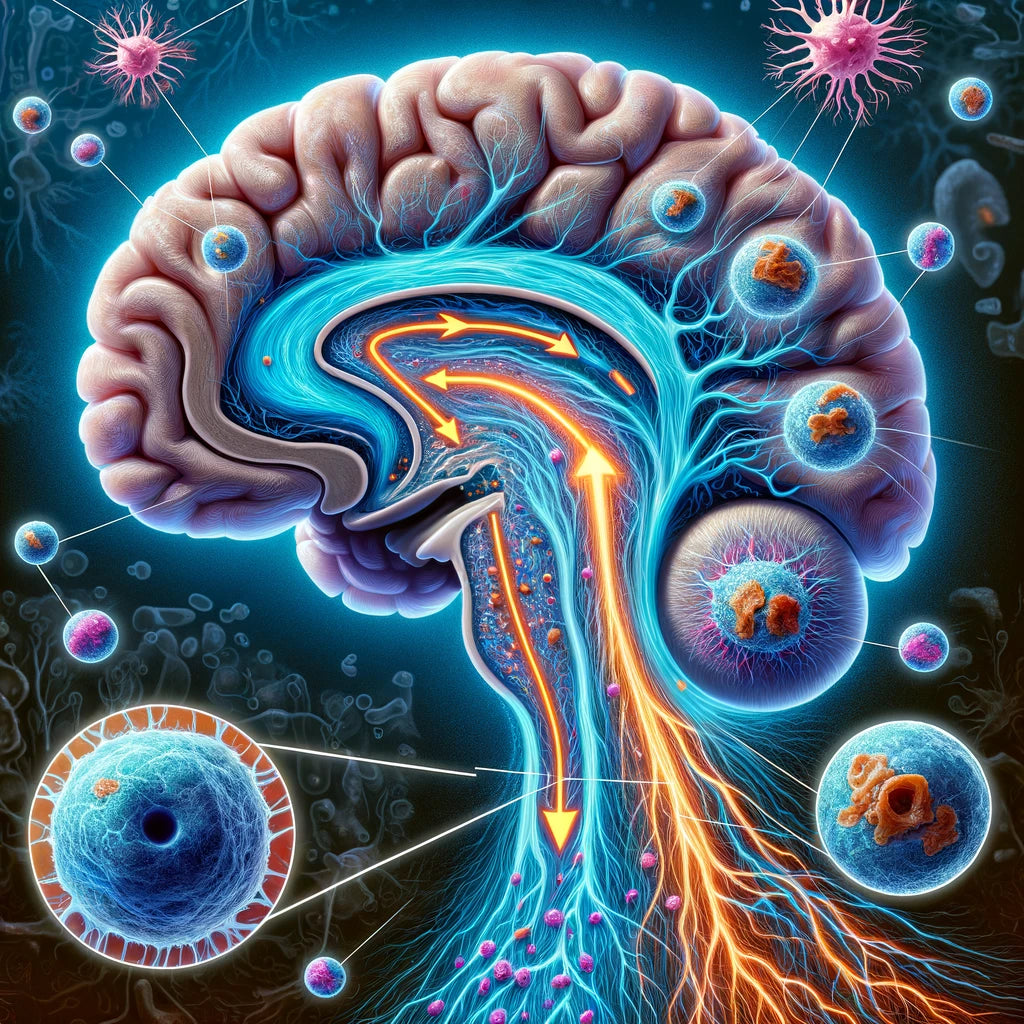News — sleep and brain health
The Brain's Sleep Debt: Pinpointing the Regions Where Memory Goes Missing
brain fog brain health supplements cognitive function sleep deep sleep brain hippocampus sleep how sleep affects memory LongLifeNutri brain LongLifeNutri sleep melatonin memory decline memory loss and sleep memory supplements omega 3 brain prefrontal cortex sleep deprivation REM sleep memory sleep and brain health sleep and neuroplasticity sleep debt sleep deprivation memory sleep hygiene
We’ve all felt it—groggy mornings, mental fog, the frustrating inability to recall where we left our keys or why we walked into a room. While a poor night’s sleep can make us feel unfocused, science shows that sleep deprivation has far more serious consequences than just daytime drowsiness. The brain accumulates a kind of "sleep debt," and when left unpaid, this debt can sabotage our ability to retain and recall memories.
But memory loss isn’t just a vague consequence of sleep deprivation. Researchers are now pinpointing the exact regions of the brain that suffer when we skip rest. From the hippocampus to the prefrontal cortex, sleep—or the lack of it—can cause measurable deficits in how we store and retrieve information. In this article, we’ll explore how sleep debt impairs memory, highlight the brain regions most affected, and uncover strategies to protect your cognitive function in a sleep-deprived world.
The Role of Sleep in Cognitive Function: Memory, Focus, and Brain Health
brain detox brain fog cognitive function deep sleep emotional balance melatonin supplement memory consolidation mental clarity natural sleep support neuroplasticity nighttime routine REM sleep sleep and brain health sleep and learning sleep and memory sleep and productivity sleep cycles sleep deprivation sleep focus sleep hygiene
Sleep isn't just about rest—it's one of the most powerful tools your brain has for staying sharp, focused, and emotionally resilient. While we sleep, the brain doesn't shut off; it goes into overdrive, processing memories, clearing toxins, and recharging the mental batteries that fuel our daily lives. In fact, consistent quality sleep is as essential to brain health as oxygen and nutrients.
In today’s always-on culture, sleep often takes a backseat to deadlines, entertainment, and stress. But research shows that sacrificing sleep can quickly lead to forgetfulness, poor focus, mental fatigue, and even long-term neurodegenerative conditions. This article explores how sleep impacts memory, concentration, decision-making, emotional balance, and overall brain health—providing the science and solutions behind better cognitive performance through sleep.
The Role of Glymphatic System in Neurodegenerative Diseases
alpha-synuclein Alzheimer's disease Alzheimer's prevention amyloid-beta clearance brain detoxification Brain Health brain health interventions brain waste removal cerebrospinal fluid glymphatic dysfunction glymphatic function glymphatic pathways glymphatic research glymphatic system neurodegeneration neurodegenerative diseases Parkinson's disease Parkinson's treatments sleep and brain health sleep quality
The glymphatic system is an essential component of the body’s waste-clearing mechanism, especially within the brain. It operates like a network of channels that allows cerebrospinal fluid to flush out harmful waste products from brain tissue. Given the importance of maintaining healthy brain function, the glymphatic system's ability to efficiently remove metabolic waste is vital. In recent years, its connection to neurodegenerative diseases, such as Alzheimer’s, Parkinson’s, and other forms of dementia, has become an intense area of research. Understanding how the glymphatic system operates and its potential dysfunction could open up new avenues for treatments targeting brain health.
As we age, the efficiency of this waste-clearing system can decline, contributing to the buildup of proteins and other toxins in the brain. Many neurodegenerative diseases are linked to these accumulations, leading scientists to speculate that an impaired glymphatic system may be a contributing factor. In this article, we’ll explore the function of the glymphatic system, its mechanisms, and how its impairment might be involved in the development of neurodegenerative diseases. We’ll also look into emerging research on therapies aimed at improving glymphatic function to combat brain disorders.



